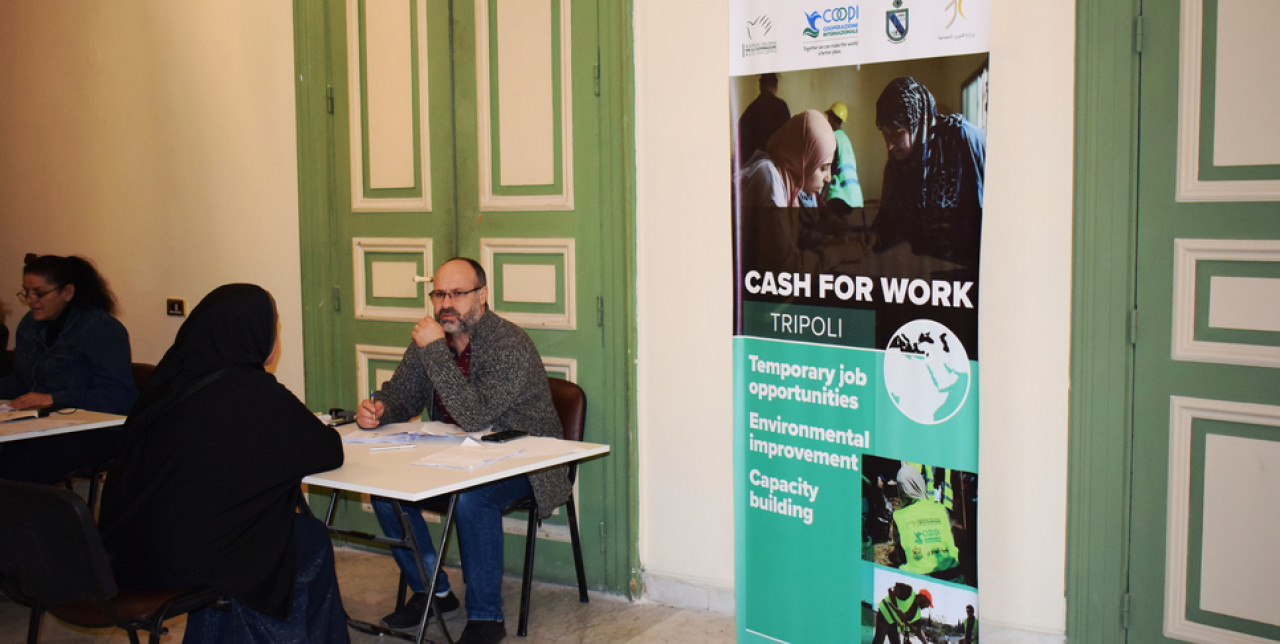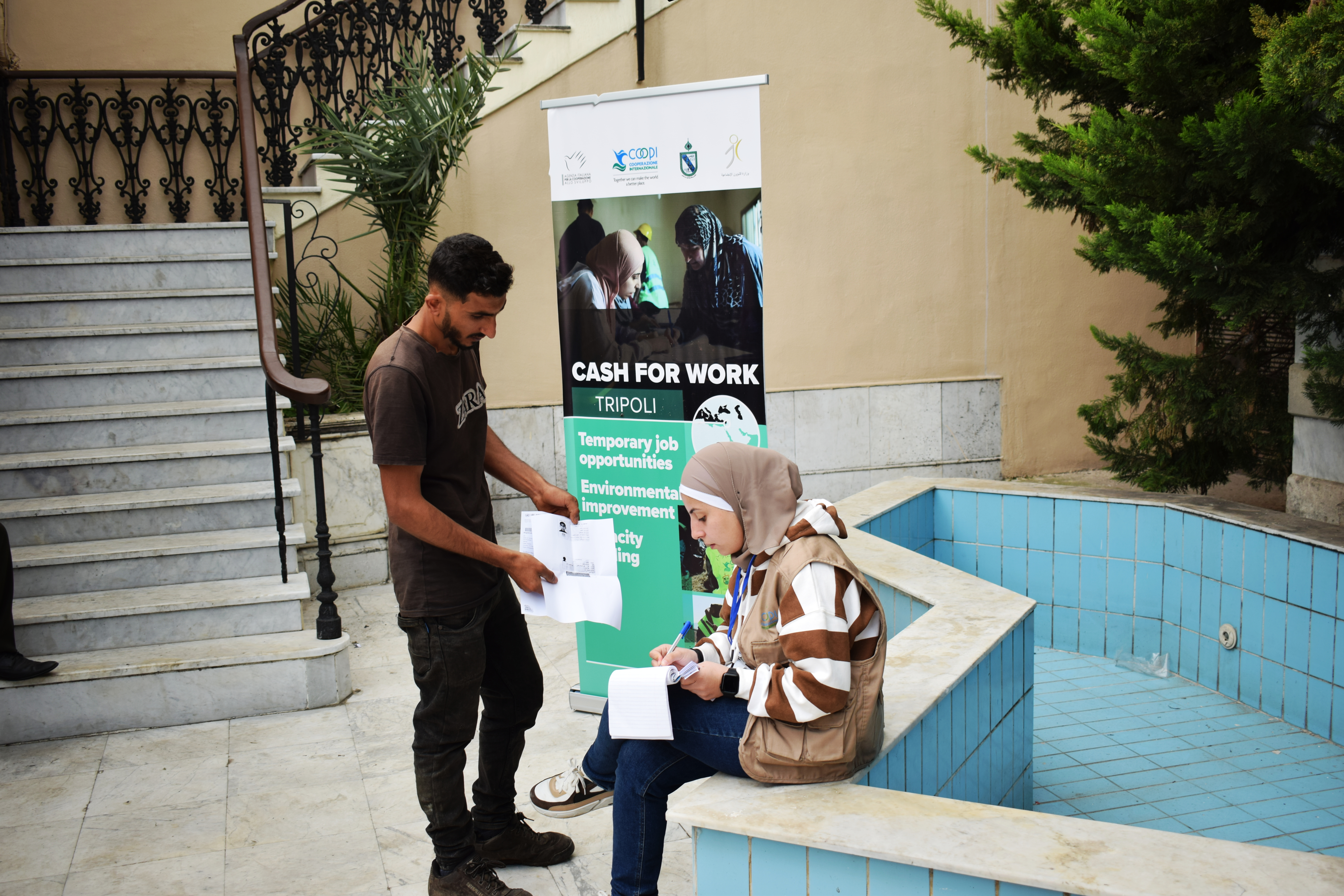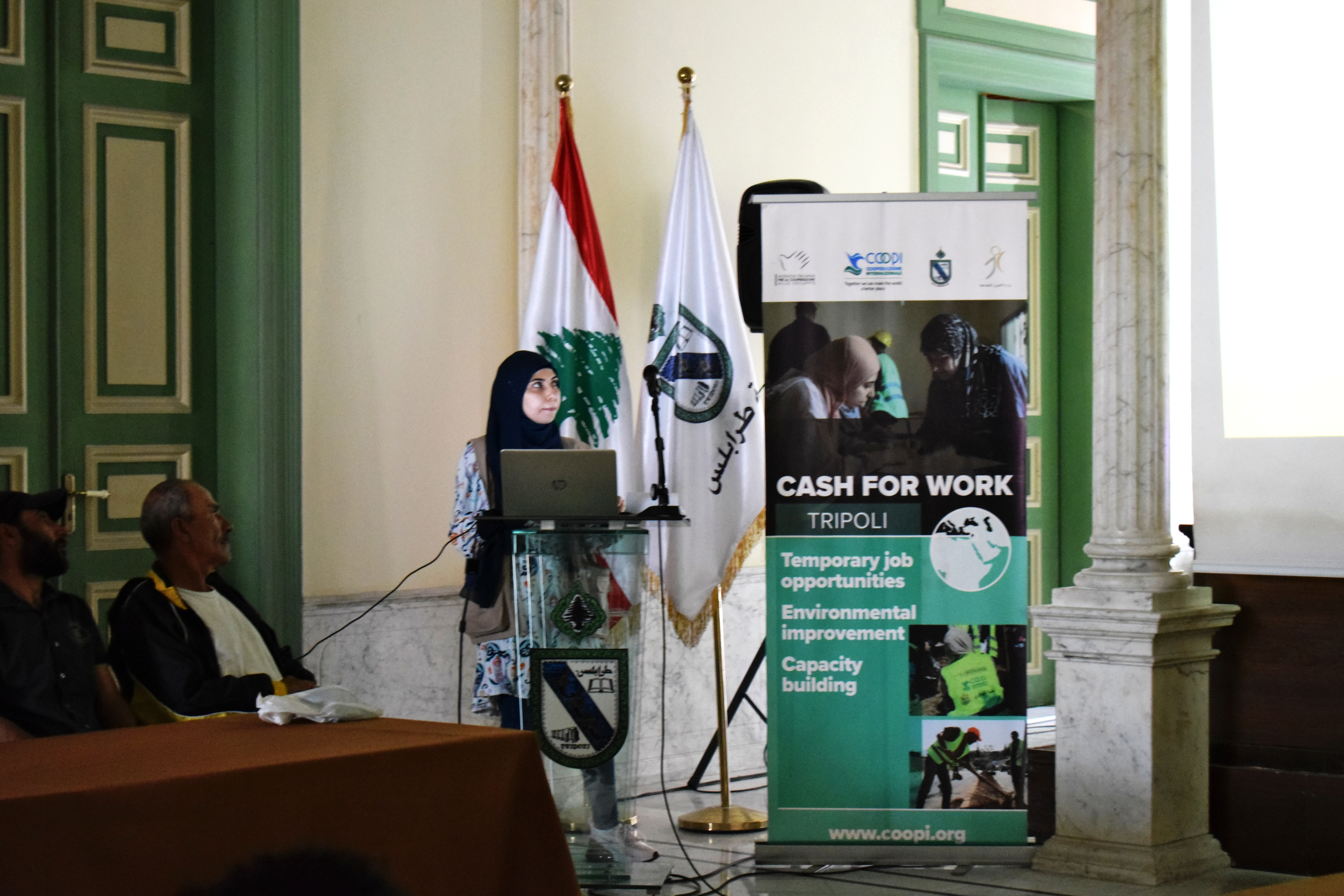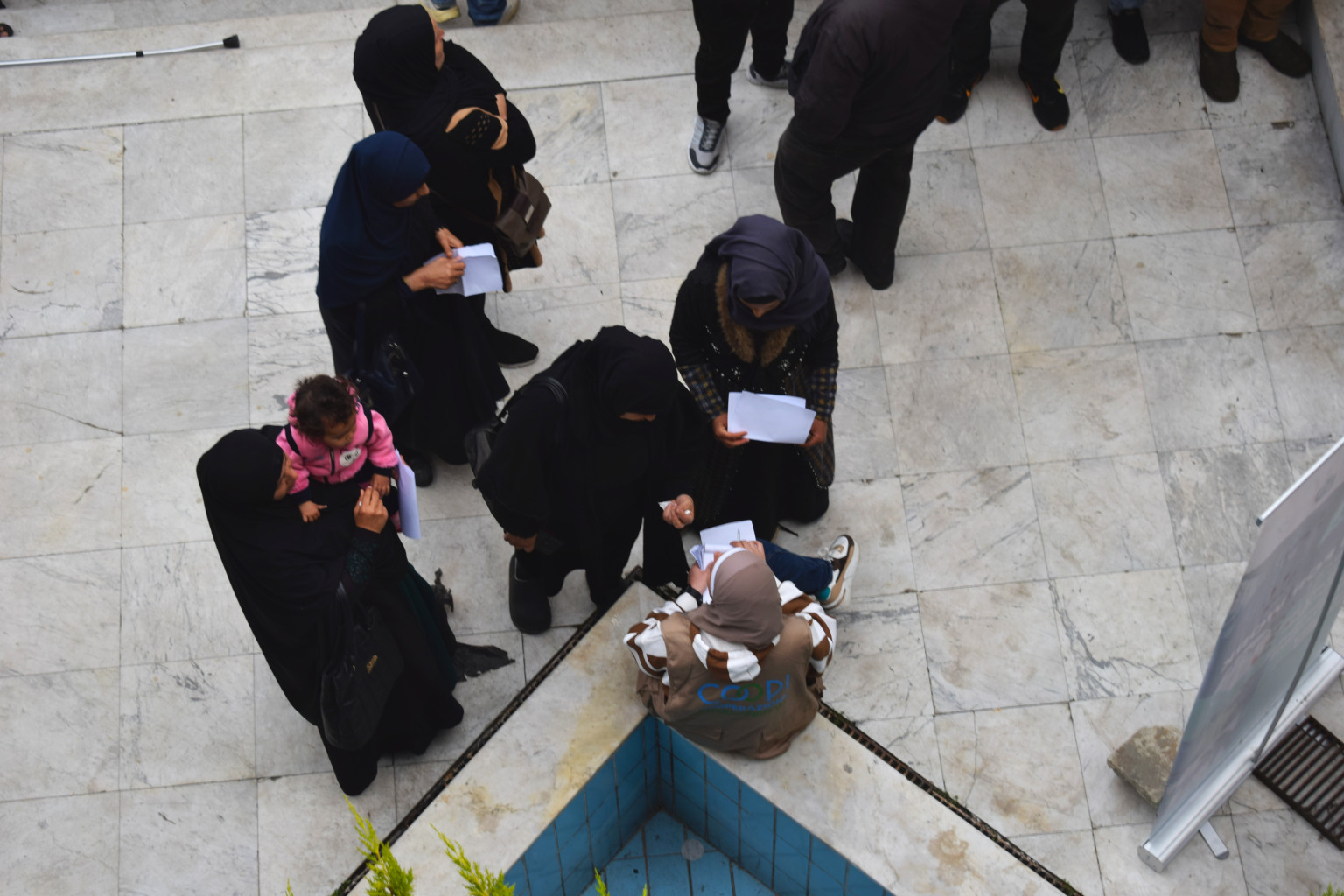31-05-2023 | di COOPI
Lebanon. With AICS, we revitalize the socio-economic fabric of Tripoli
COOPI - Cooperazione Internazionale’s "Revitalizing the Socio-Economic Fabric of Tripoli" project, thanks to the support of the Agenzia Italiana per la Cooperazione allo Sviluppo (AICS), is beginning to take shape: thanks to the temporary employment of people in vulnerable conditions, two public gardens will be rehabilitated and a cleaning campaign conducted in the Abu Samra neighborhood; in this way, it will be possible to mitigate the social consequences of the economic crisis and the Syrian crisis, generating beauty and sociability for the host and refugee population.
Regarding the rehabilitation of the public gardens in Al-Alaab and Al-Hallab, 250 beneficiaries will work under the supervision of COOPI's Project Engineer. Specifically, they will be set up:
- A children's playground;
- A chess and backgammon area for adults;
- A small kiosk for the sale of coffee, cakes and manouches.
In addition, fences will be installed for security and maintenance of the gardens, while a solar panel system will be arranged for lighting, given the serious electricity problem in the city of Tripoli.
For the cleaning campaign, on the other hand, 140 beneficiaries will be involved in street cleaning and door-to-door waste collection for recycling, and this initiative will be carried out together with the collaboration of the social enterprise Green Track, which provides employment opportunities for the most vulnerable and contributes to the improvement of waste management, hygienic conditions, respect for the environment, and the quality of life of the local population.
The selection of beneficiaries turns out to be a key component in these projects as they are designed with the idea of responding to the socioeconomic needs of the most vulnerable by offering them the opportunity to access temporary and decent jobs. The project was promoted through the publication of an announcement throughout the Abou Samra area and through the online channels of the project partners to invite people to apply for cash-for-work (CFW) activities. The announcement was drafted, designed and approved by the local steering committee, AICS and the Ministry of Social Affairs (MOSA) to make it as effective and understandable to all. In addition to this, 50 copies were circulated in the most relevant areas, while others were posted on the social channels of the project partners.
The publication remained active for seven days for the registration period in the Rashid Karami Public Center building, which was identified by the municipality as the most suitable venue, in order to ensure a fair timing to attract as many people as possible. MOSA was, therefore, in charge of candidate registration with six field workers experienced in data collection and analysis.
COOPI and local partners were always present to facilitate the entire process. After only two days of open registration, there were 174 applicants and only a small proportion were Lebanese (155 were Syrians). Therefore, a quick meeting was organized with the Steering Committee to identify an early intervention in order to increase the percentage of Lebanese, thus extending participation to the areas of El Qoubbeh and Jabal Mohsen. These neighborhoods were selected because of their similarities and proximity to the Abou Samra intervention area. Thus, a total of 390 project beneficiaries were selected, identified among the most vulnerable and needy, with parity between Lebanese and Syrians.
The activities that began on May 29, 2023 will last until September, and the work period will also include information and awareness sessions on gender-based violence, child labor, drug addiction, positive parenting, and the environment.
COOPI's social worker will provide and ensure social protection for all beneficiaries through individual social counseling sessions and referrals when needed.
COOPI has been working in Lebanon since 2013 to bring support to Syrian refugees and the local population.




 Lebanon
Lebanon


